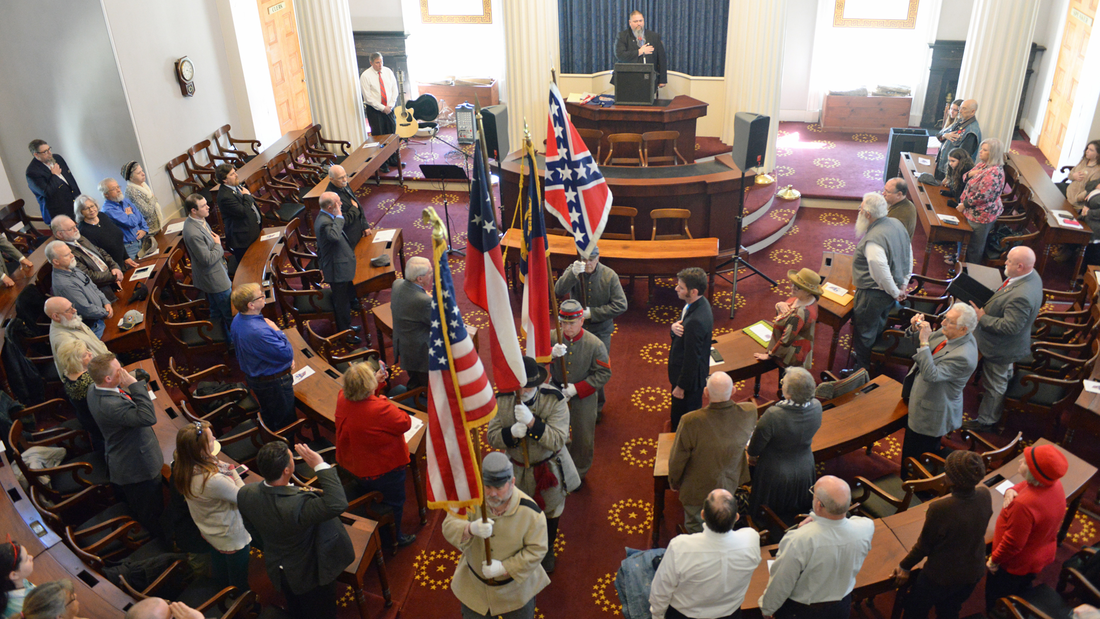
For thirty-one years the North Carolina Division of the Sons of Confederate Veterans has sponsored annually Confederate Flag Day, an event commemorating our state’s rich history and Southern heritage, held in the House of Representatives chamber of the historic 1840 Tar Heel State Capitol. First proclaimed by former Governor James G. Martin in 1988, the day has served as an occasion to host a number of major guest speakers: including former Chief Justice of the North Carolina Supreme Court Beverly Lake Jr., distinguished historians Clyde Wilson and Lee Congdon, and internationally-known authors such as Don Livingston and Paul Gottfried.
For all those years, the event has been peaceful and gone off without problems. Indeed, the Sons of Confederate Veterans has been a major contributor to the programs of the State Capitol, providing funding for restoration and preservation projects, and supplying volunteers for Capitol activities.
This year was different.
More @ Reckonin'



